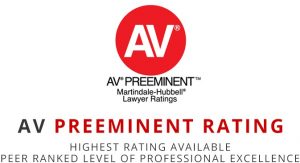What is Chapter 13 Bankruptcy?
When someone files for bankruptcy under Chapter 13 of the Bankruptcy Code, their aim is to have the opportunity to repay some or all the debts in their name, in better terms, i.e. lower or no interest. Unlike Chapter 7 which involves liquidation of assets, this process allows the debtor to use whatever income they may have in the future to pay off the creditors. Needless to say, filing Chapter 13 Bankruptcy is applicable for a debtor who does have a regular income, and thus can afford to request for such adjustments, or reductions.
The United States Bankruptcy Code gives the debtor a ceiling of 5 years, within which the creditors must be paid back. While the attorney will safeguard your interests, the entire process is carried out under the supervision of the courts.
How Does Chapter 13 Bankruptcy Work?
While debtors are allowed to keep all of their property, the court approves a new interest-free plan for repayment. A written plan is created giving details of all the transactions that will occur, and the duration of the same. The repayment must begin within thirty to forty-five days after the case has started. The transitory stage of paying a trustee who then pays a creditor, as in Chapter 7 Bankruptcy is usually eliminated with Chapter 13 Bankruptcy. Although, in some cases people may involve a trustee who would take care of disbursing money to the creditors as per the plan. Also, as per the law the creditors must strictly adhere the repayment plan approved by the court and are in fact prohibited to collect any claims from the debtor. Your attorney will prepare new repayment plan to best suit your situation.
The one advantage of Chapter 13 over Chapter 7 Bankruptcy is the full discharge option which is not applicable under Chapter 7 filing. For example, if a debtor manages to complete all necessary payments in the plan, he/she is given a full plan discharge. (There are a few exceptions to this case, which your attorney will guide you about if necessary.) Yet another advantage of the Chapter 13 filing is that a repayment can be created even if creditors disagree with it, as long as it is approved by the Court. Although, in all fairness the court allows creditors also to file an objection, in case they may have any.
Who Can File For Chapter 13 Bankruptcy?
The most important criteria for a person to be able to file for Chapter 13 bankruptcy is that the individual must have a regular income. There are a few other criterions that must be met for filing a Chapter 13 Bankruptcy, your attorney will be the best person to introduce you to these!
How Can I File For Chapter 13 Bankruptcy?
Let ’s just say our attorneys will ensure that you don’t need to bog yourself down by trying to understand the complicated details of this answer. Essentially, the filing for Chapter 13 Bankruptcy entails the following:
- Determine whether Chapter 13 is the best solution for you.
- Prepare a budget.
- Examine individual cases to figure out whether require filing of Chapter 13 bankruptcy, or can be tackled in some other way.
- Determine and implement methods of dealing with secured creditors.
- Devise a chapter 13 plan, and fill out the forms.
- Pay the filing fee and complete the process of filing the forms and pleadings.
- Attend whatever meetings you maybe required to attend; with the creditors, court hearings etc.
- Obtain a discharge once the payments have all been made, and the plan terminated.
Bullet points have a habit of making things look neat, orderly and simple. Much like our efficient attorneys who will straighten out the crumples in the process of filing for bankruptcy. There’s a lot that lies between the lines, and it goes without saying that our attorneys will take care of these things. All you have to do is fill out that evaluation form that will tell you whether you need to file for bankruptcy in the first place. Thereafter, our sponsored lawyer on the other side of that phone call will handle, and solve your financial crisis.


